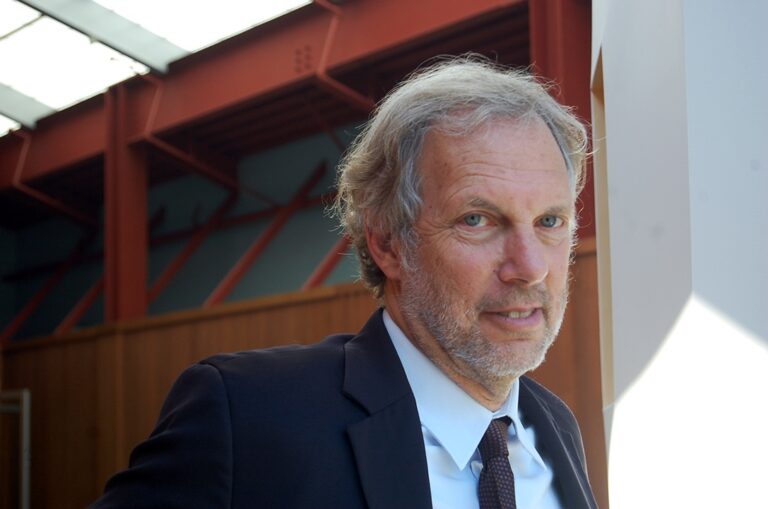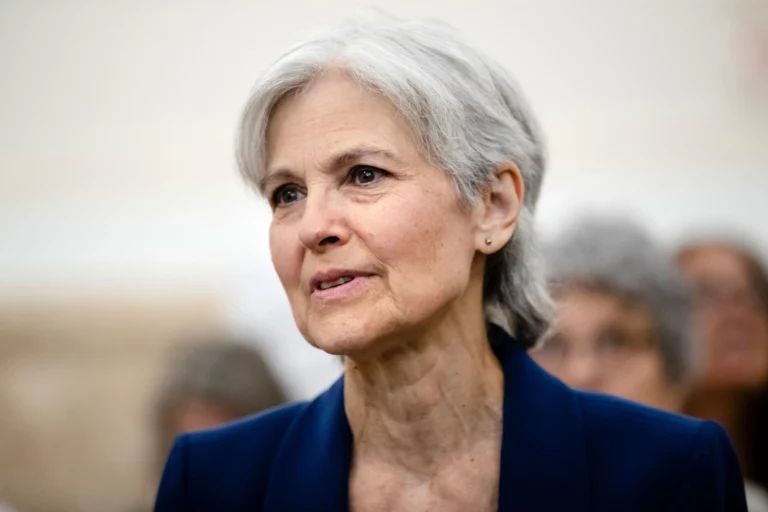Research by Tim Wise (GDAE-Tufts University) is conclusive and fully resonates with claims by Africa’s biggest grassroots movement, the Alliance for Food Sovereignty in Africa: the corporate capture of food systems should be rejected. Donors and government funding must shift to agroecology. This is an interview hosted by Lynn Fries of GPEnewsdocs.
Here is a link to the website: https://gpenewsdocs.com/
TRANSCRIPT
TIMOTHY A. WISE: One of the things that we are really pleased about, about the the book, is the title: Eating Tomorrow. The double meaning captures the real essence of what I was trying to communicate. Which is that humanity does indeed face a continuing challenge to ensure that everyone can eat today. And climate change makes that challenge all the more daunting about making sure everyone can eat tomorrow.
But the way we are producing our food on chemical intensive, industrial scale farms is quite literally devouring the natural resources – the seeds, the land, the soil, the climate, the water – on which future food production depends.
By continuing and now even expanding such unsustainable production methods we are eating our collective tomorrows. And the powers that be far from shifting away from that kind of a damaging farming model are instead promoting evermore industrial scale agriculture.
I wrote this book because with thirty years in this field, I wanted to understand why policy-makers were ignoring all the low cost solutions all around them offered by their own small-scale farmers. And instead they are pushing expensive policies that not only fail to help the hungry eat today; they are undermining the capacity of all of us to eat tomorrow.
LYNN FRIES: Hello and welcome. I’m Lynn Fries producer of Global Political Economy or GPEnewsdocs. Today’s guest is Tim Wise. In that opening clip, Wise was speaking at the 2019 launch of his book Eating Tomorrow, a book about Agribusiness, Family Farmers and the Battle for the Future of Food.
Today, we will be looking into the battle for the future of food in Africa. We’ll do this through the lens of two very different alliances. One, the Alliance for Food Sovereignty in Africa and the other, the Alliance for a Green Revolution in Africa. Their respective acronyms being AFSA and AGRA.
Tim Wise is senior research fellow at Tufts University’s Global Development and Environment Institute. And senior advisor on the future of food from the US to India, Mexico to Mozambique at the Institute for Agriculture and Trade Policy. Welcome, Tim.
TIM WISE: Thanks so much, Lynn.
FRIES: In early Sept, the Alliance for Food Sovereignty in Africa released an open letter stating the Green Revolution had failed Africa. In the statement, AFSA demanded that donors of the Alliance for a Green Revolution in Africa stop funding the AGRA initiative. There was a press briefing held at the time. So, Tim, start by giving us some background on all that. And who the Alliance for Food Sovereignty in Africa represents. And something about the discovery process of your own research findings on the Alliance for a Green Revolution in Africa.
WISE: When I was researching my book a lot of the work I did was in Southern Africa. I heard a lot about the Alliance for a Green Revolution in Africa. And its program to promote the use of chemical fertilizers and commercial seeds to replace seeds and practices that farmers typically use in those regions. But you never came across the actual organization, AGRA. What you saw was lots of promotional activity and direct subsidies by African governments to sell those inputs. And you heard a lot about how it wasn’t working.
After I’d heard about that really for the three, four years I was doing the research for the book, I finally got the occasion to do a deeper study on whether the Alliance for a Green Revolution in Africa was having the kind of impact that it claimed it was going to have. Really promising a productivity revolution for Africa’s small-scale farmers.
They promised in their original goals to double productivity and yields and incomes for 30 million small-scale farmers, that’s a lot of farmers, while cutting food insecurity in half. So I just looked at the 13 countries that AGRA has focused on for most of its 15 year history. And looked at whether there was any sign of a productivity revolution: income improvements or food security improving. And there really isn’t.
So it was striking that what I had observed more anecdotally out in the field doing my research for the book was so dramatically confirmed in this research on: Well, where’s the Green Revolution? And the farmers I’d talked to in Southern Africa weren’t wrong when they said: it’s not working. It’s not working.
So the Alliance for Food Sovereignty in Africa (AFSA) is the largest civil society organization in Africa. Those farmers I was talking to in Southern Africa are members of organizations, peasant unions, networks that are often members of the Alliance. They claim among members and affiliates over 200 million members across the continent in 50 countries. So this is a large powerful grassroots organization representing food producers largely, not just farmers but fisher-folk, pastoralists, and others.
And so when they take a stand and directly challenge the Alliance for a Green Revolution in Africa and donors to it, to stop funding it, it’s a big deal. And it really deserves attention because it’s a bold step for an organization to come out that publicly and say to aid organizations: Hey, your aid is not what we want or need.
We want something else. And the something else they want is support for agroecology. And other low input small-holder friendly climate resilient programs that actually support small holders doing what they do, but doing it better.
FRIES: In the words of AFSA at that press briefing: After nearly 15 years spending more than $1 billion to promote the use of commercial seeds, chemical fertilizers, and pesticides in 13 African countries and an additional $1 billion per year of African government subsidies for seeds and fertilizers, AGRA has failed to provide evidence that yields, incomes or food security increased significantly and sustainably, for small holder households across its target countries.
So the message from AFSA to AGRA’s donors is: stop funding Green Revolution technology. And shift support to agroecology, an approach that Africa’s small hold food producers say works and they want. What in short is meant by agroecology?
WISE: Agroecology is defined in many different ways but I think the simplest way to understand it is an approach to growing food that tries to work in harmony with natural systems rather than trying to overcome them by using say pesticides to control pests, fertilizer to create soil fertility for the crops, etc.
But it’s also a social movement at this point. And I think a lot of people, like those at the Alliance for Food Sovereignty in Africa are really connecting it to food sovereignty. In the sense that it’s really about empowering local food producers to take the lead in determining how agriculture and food moves forward.
FRIES: The General Coordinator for the Alliance for Food Sovereignty in Africa put it this way: We welcome investment in agriculture on our continent. But we seek it a form that is democratic and responsive to the people at the heart of agriculture, not as a top down force that that ends up concentrating power and profit into the hands of a small number of multinational corporations.
The AFSA press briefing at the time the Open Letter made clear that well before releasing that Open Letter in September, AFSA had sent letters to major AGRA donors asking them for evidence AGRA was living up to its promises. In other words, meeting its goals. But AFSA reported they received few and no credible responses. This despite the fact that AFSA network represents as you say 200 million food producers across Africa.
WISE: These leaders are deeply insulted and they should be. I mean, it’s not just the Alliance for Food Sovereignty in Africa. One of its member organizations, the Southern African Faith Communities Environment Institute, an organization started by faith leaders in Southern Africa, wrote an open letter to the Gates Foundation.
The Gates foundation is far and away the largest donor to AGRA. I mean really it is the Gates Foundation’s organization. They’ve contributed two thirds of a billion dollars over 15 years of AGRA’s billion dollar budget so far. So it’s really their organization.
And they never even responded to this letter sent by faith communities, a letter signed by 500 faith leaders across the region. I mean, I don’t know the lack of accountability is really astonishing from these organizations.
AFSA, the Alliance for Food Sovereignty in Africa wrote its letter in June. Sent it to all of the major donors to AGRA. And got very few replies, absolutely no evidence. And no response at all from the Gates Foundation, the Rockefeller Foundation, from USAID a major sponsor, UK AID. They got very little and nothing in terms of evidence.
It’s a little bit surprising to me that having published my research now more than a year ago, that none of the donors and AGRA itself have come up with anything credible that refutes or challenges our findings that it’s not working. I mean, we found such failure. We found that yields have increased hardly faster than they had before AGRA and the Green Revolution push came along. And at very low rates.
We found that poverty was still endemic, particularly in rural areas. And the most remarkable and to me surprising finding honestly was that the number of undernourished people, the UN’s measure of severe hunger, had gone up 30% rather than being cut in half in Agra’s 13 countries.
FRIES: The published research you just cited is the July 2020 Tufts University paper titled Failing Africa’s Farmers: An Impact Assessment of the Alliance for a Green Revolution in Africa. And for this impact assessment, we should note you used national-level data to assess progress in productivity, poverty reduction, and food security in AGRA’s 13 target countries.
Because despite spending billions, there was little publicly available documentation on the impact of the AGRA initiative was having. Either from AGRA, the Gates Foundation, or donor governments. And AGRA itself declined to provide data from its own monitoring and evaluation. However in 2020 as AGRA reached its own self-imposed deadline in meeting its own stated goals, your study revealed that AGRA had failed on its own terms. And you’ve confirmed those findings in subsequent updates.
So fast forward to October 2021, you find it surprising that AGRA and AGRA donors have failed to provide credible evidence to refute the findings of your research publications. And a related report: False Promises.
So as an alarming example of all this you were saying that far from meeting its goal to cut hunger in half by 2020, undernourished people in Africa, which is the UN measure of extreme hunger, has gone up in AGRA’s 13 countries.
WISE: The most recent UN report is even more alarming about this being just the wrong, the wrong path for Africa to follow. Because it showed that the number of undernourished people in Sub-Saharan Africa, as a whole since 2006 when AGRA was founded, has increased by 50%, not decreased by 50%.
So taking Africa in the absolute wrong direction. And no answer providing any evidence that anything they’re doing is really working.
And then, like you said, no accountability. No interest in engaging and responding to these major community organizations and networks in Africa. The real stakeholders that matter, if you’re talking about increase in small holder productivity and incomes and food security, no response to them.
FRIES: Among other things, the report A Sting in the AGRA Tale makes the connection between Africa’s being taken in the wrong direction and AGRA’s influence on laws in favor of agribusiness in Africa. That report details how AGRA promotes and creates through financial and other contributions, an institutional framework in many of its focus countries that makes its own Green Revolution approach binding through laws and framework conditions.
In other words, AGRA’s role in the corporate capture of governance of food and agriculture in Africa. The upshot being the exclusion of voices of the real stakeholders at the heart of agriculture in Africa. Which is what AFSA obviously argues.
What the UN Food Systems Summit has shed light on is AGRA’s influence in as it’s put in the title of a report on this topic Cementing corporate capture of food governance through decision making in the worlds international public institutions. And the corporate capture of the UN Food Systems being a case in point.
And a recent report Exposing corporate capture of the UNFSS through multi-stakeholderism gets into details. Among other things, the report shows how AGRA fits into the interconnections between multi-stakeholder institutions and corporate actors and corporate influence in the leadership of the UN Food Systems Summit.
So given all that, comment more broadly on the battle for the future of food in Africa. And specifically, give us more context on the statement by the Alliance for Food Sovereignty in Africa that they quoted wanted: to state clearly and categorically that AGRA does not speak for Africans.
WISE: The Alliance for a Green Revolution in Africa is based in Nairobi. Every year they hold an annual Green Revolution Forum, it’s called. It’s really a place where agribusiness and governments and foundations come together and kind of rally the troops and make deals for investment and the rest.
This year they were, I thought pretty brazen and insensitive in announcing that their Green Revolution Forum would offer what they called a single African, a coordinated African voice going into the Food System Summit. As if they spoke for Africa and African food producers. And that just incensed the leaders of the Alliance for Food Sovereignty in Africa. It was like; you do not speak for Africans. We speak for African food producers and you won’t even answer our letters.
The battle for the future of food is exactly a battle between, I call it agribusiness and family farmers but it’s much broader than that. Right? It’s the, it’s the battle between those who are advocating an equitable, just and climate resilient and sustainable food system that produces healthy food. And those who are advocating really business as usual. In spite of their claims that business as usual is no longer an option.
That’s exactly what they’re offering at this UN Food Systems Summit, for example. The UN Special Rapporteur on the Right to Food, Michael Fakhri has participated in that process with a very critical eye. And came out with a report as the UN Special Rapporteur is saying the problem with the way this has been conducted and the way it’s being carried out and with the conclusions that it’s coming to with a bunch of so-called game-changing solutions to our food system problems is that corporate interests have dominated the agenda. That it has marginalized the actual food producers from those discussions.
And the outcome is more strategies that are threatening to have us eating our collective tomorrows by undermining a resource base we need to grow food in the future. Not just in Africa, in the US. Not just in the U S, in India.
The Food Systems Summit was convened on the premise and the recognition that we were not on track to meet the goal by 2030 of eliminating extreme hunger. We absolutely are not. In fact, we’re moving in the opposite direction.
And unfortunately, the Food Systems Summit has jettisoned all of the most promising approaches that could actually end business as usual and give us food systems that begin to restore the earth, provide healthy and nutritious food to everyone on the planet. And achieve the promise of the right to food that is enshrined and endorsed by so many countries around the world.
FRIES: Let’s talk now about another common denominator in what’s happening with food systems. Whether how the AGRA initiative is taking Africa in the wrong direction or the UN Food Systems Summit is taking the world in the opposite direction of what you say could actually begin to restore the earth and provide healthy and nutritious food for everyone on the planet. I am thinking here about disinformation campaigns that demonize approaches like those jettisoned from the UN Food System Summit that you’re talking about.
For instance, an OPED by renowned economist Jomo K.S. titled Beware UN Food Systems Summit Trojan Horse draws attention to what he calls deliberate deceptions to undermine support for agroecology. And the Gates funded, Cornell Alliance for Science, for instance has been widely criticized for disseminating this kind of disinformation. In a Scientific American OPED titled Bill Gates Should Stop Telling Africans What Kind Of Agriculture Africans Need AFSA gives details how this applies to Africa where support for the agroecology paradigm they support is being undermined among Africa’s scientists and political leaders by this kind of disinformation campaign. So, comment on this demonization of agroecology.
WISE: It’s a concerted campaign. And in part that’s the result of the movement for agroecology gaining traction in international institutions like the UN Food and Agricultural Organization where they adopted a scaling up agroecology program to support governments that want expand ecological agriculture.
The UN’s High Level Panel of Experts on Food Systems is a very well-respected group that does these in-depth studies. They just recently did one that resulted in a resolution by the Committee on World Food Security [CFS] to promote agroecology as one of the important solutions to the climate crisis and to hunger.
So it’s gaining traction and the powers that be are alarmed. And they’ve fought back with just crazy disinformation campaigns portraying African farmers as backwards, saving their seeds and being wedded to what they call traditional technologies.
What most offended me as a researcher who has worked with a lot of different organizations that promote agroecology is that they are wildly innovative. I mean, the idea that this is somehow backward is just ludicrous
I mean, they’re basically taking scientists out into the field and talking to farmers and saying: what do you need? How can you improve your soil fertility, so you get higher yields? How can we help you? The innovations are not minor in that process.
And in fact, farmers themselves are some of the most innovative because they are the ones on the front lines of climate change. They see what see perform well under drought conditions. They see how growing a multiplicity of crops in the same fields improves soil fertility and reduces their climate risk. Because if a drought comes through and wipes out the corn crop, they have other crops that they can rely on for food.
That’s where the Green Revolution model is so limited. But to have these proponents of what I argue is actually really old technology. Seeds and fertilizers, that strategy comes from the Green Revolution of the sixties and seventies in the last middle of the last century. We are 50 years on from that and they’re still selling the same old technologies.
How can you, how can you demonize people who are truly innovating with ecological agriculture with this old technology claiming that it’s an innovation that is somehow fresh, new and, and going to solve today’s problems. It’s just not.
FRIES: So then the way you see it, is that these disinformation campaigns partly reflect agribusiness’ alarm at a situation where governments instead of depending on corporate solutions to combat hunger and climate change are increasingly seeking solutions in other approaches. And in the case of scaling up agroecology, doing so with the support of programs at the world’s public institutions of food governance. In this case, the UN Rome based agency, the Food and Agriculture Organization or FAO.
So, it is not so hard to understand how an agenda and narrative coming out of the UN that agroecology is a win-win-win for people, planet, and livelihoods would alarm agribusiness and its allied interests. And how as you say corporate interests are fighting back.
This then serves to protect markets for corporate innovation from old technology like the Green Revolution technology we’ve been talking about in the context of Africa to new technology like the kind championed as techno-fixes at the UN Food Systems Summit.
Talk more about as a market for corporate innovation. Most of us thing of Green Revolution technology as genetically modified crops. So tell us about the kind of Green Revolution technology that’s being advocated by AGRA in Africa.
WISE: Agra itself is very careful not to publicly state that it is advocating for genetically modified crops because they are just so widely rejected on the continent of Africa. What it’s doing though and what the Gates Foundation is doing and others USAID are advocating for changes in seed laws and intellectual property laws that would open the door for genetically modified crops to start to be used in Africa.
They’ve made some incursions in that regard in Nigeria and in Ghana. Overwhelmingly the countries do not allow genetically modified crops particularly food crops to be grown. Cotton is often an exception to that because it’s not directly consumed.
But it’s important to recognize the road to genetically modified crops has a number of steps along the way. First what you do, if you’re trying to open that door is you get farmers to stop using the seeds that they save year to year. And you don’t need GMOs to do that.
What the Green Revolution sells is what are called hybrid seeds. Seeds that have been bred. And they’re bred in such a way that they supposedly will give you high yields. Usually only if you have all of these inputs that mostly farmers can’t afford: irrigation, fertilizer, pesticides and the like.
Hybrid seeds can’t be saved from year to year because they don’t hold their what’s called vigor, their productivity. It will degenerate if they’re saved from year to year.
So the first step you do and I saw this in Malawi is you try and get farmers to give up their local seeds. You tell them they’re unproductive, some of them are not very productive. That they’ve been overused. That they’re tired, as people would say, and you should start using our commercial seeds. And once you’re using them, you can’t save them.
So you need to buy them every year and you’ve opened up a market for seed suppliers. Monsanto and now Bayer in Malawi sells 50% of the hybrid maize seeds in that market. And so those are big markets for these seed companies. They don’t need to be selling GMOs to make money.
And that path of getting farmers dependent on commercial seeds that are these hybrids, you can’t save year to year so they have to buy them every year and the fertilizers to make them grow creates a dependency that is very much serves the interests of these agribusiness corporations.
FRIES: So the experience we have seen in the Green Revolution from the ‘60s and ‘70s over the decades in other parts of the world is that as farmers get put on the path of dependency on these corporate inputs they can run into serious debt problems. So comment on that risk.
WISE: Sure that’s a huge risk. It’s probably the headline risk that people have heard about from India because of the high levels of farmer suicides. Farmer suicides, because crops fail and farmers have gone into debt to buy the seeds and fertilizers and rather either out of the humiliation or being in debt or that the desire to free their families from the debt that the farmer himself has incurred, they take their own lives.
We’re not at that level in Africa. I mean the levels of dependency are not as high on these inputs. This is a relatively early stage in the attempt to bring African agriculture under agribusiness’s control. The vast majority of African food is still produced by Africans using seeds they’ve saved from year to years from their crops. So that’s the market that the Bayer Monsanto and others want to get.
FRIES: In wrapping, talk now about agroecology as the kind of approach members of the Alliance for Food Sovereignty in Africa want AGRA donors to shift funding to. There is plenty of compelling and inspiring stories in support of that on AFSA’s website which has a whole section of agroecology case studies. Your work takes you all over the world but staying with today’s focus on Africa, tells us some of what you are seeing there.
WISE: Oh sure. I mean, it’s very inspiring stuff. That’s what keeps me in this work. It’s been awful under COVID not to really be able to travel and do that kind of international research and reporting that I was able to do for the book. And in my career generally to be out in the field and see what’s going on.
It really is a growing movement. I mean you have literally millions of acres in West Africa in a program of restoration of degraded dry lands through the regeneration of tree farming. A very simple but labor-intensive process of getting trees that have been cut down to grow again. They provide shade. They literally changed the climate in that region and allowed food once again to be grown on those lands, wildly successful and literally on millions of acres of land.
You have others where again, I think it’s millions of acres of farmers doing what’s called either inter-cropping or cover-cropping. It’s basically farmers who’ve grown dependent on monocultures of maize of corn, which is what’s generally promoted being coached into choosing good leguminous crops, like beans to inter-crop in the rows of corn.
Very much taking from what we know in the United States, as the old three sisters model of the ancient Maya, right? You grow bean squash and corn in the same fields and you are both producing a nutritious diet in combination and a way to sustain the soil in combination. That’s all been destroyed by industrial agriculture. That’s been broken apart each crop on its own field and mining the nutrients from the soil in their own ways.
In Africa, they are huge projects to get farmers growing these leguminous crops with their maize crops. And they found, these guys have more than doubled yields for maize and other food crops in the process without resorting to dependence on chemical inputs.
It’s really not hard to find success stories out there. But if you have your blinders on like the Gates Foundation does, and others, and you are wedded to the dogmatic notion that the only way you can get progress and solve problems is with technologies, then you’re missing that train.
FRIES: Tim Wise, thank you.
WISE: Thank you so much, Lynn.
FRIES: And from Geneva, Switzerland thank you for joining us for this segment of GPEnewsdocs. For related stories, I will put links in the transcript to conversations with guests Harris Gleckman, Nick Buxton, and Pat Mooney respectively.
The conversation with global governance expert, Harris Gleckman, unpacks the multi-stakeholder model championed by multi-stakeholder institutions like the World Economic Forum as the mechanism and pathway for the corporate takeover of global governance. A process that is being at the United Nations under a strategic partnership agreement signed by the UN Secretary General with the World Economic Forum. The conversation with Transnational Institute’s Nick Buxton was on how people’s movements all over the world are mapping the corporate takeover of global governance in sector after sector from agriculture to technology. What Buxton calls a silent global coup d’état. The conversation with ETC Group & IPES Food’s Pat Mooney goes into the corporate takeover of global governance of food and agriculture and reaches into the corporate capture of the UN Food Systems Summit that was part of today’s conversation with Tim Wise.
This program was recorded September 20, 2021
END
Timothy A. Wise is author of Eating Tomorrow: Agribusiness, Family Farmers, & the Battle for the Future of Food. He is a senior research fellow at Tufts University’s Global Development and Environment Institute & senior adviser at the Institute for Agriculture and Trade Policy.
Produced by Lynn Fries / GPEnewsdocs







Bless both of you.
great information. Thank you Lynn and thank you Tim.
I see a connection between the global food supply and the covid pandemic. It seems that the Gates Foundation and others are trying to control the future of not only food but all aspects of life that would benefit the Commons. This is a deliberate attempt to control everything that the public deems important for life and a decent future for the global community. They want to smash the global economy, put all nations in debt and like vultures consume what it left over for themselves. There is more to come on this so please pay attention to the fear campaigns that are on full speed in order to control a world population that is scared out of their minds. Peace.